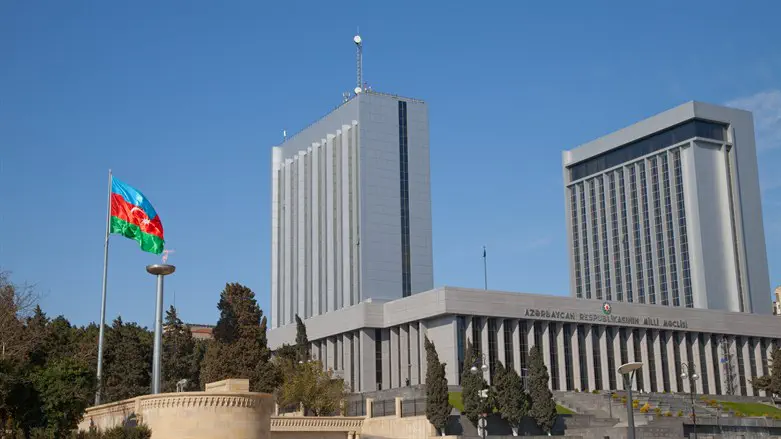
Under the vision and global outlook of U.S. President Donald Trump, who continues to forge connections once deemed implausible, Azerbaijan has once again reached a pivotal crossroads. Should Baku decide to join the Abraham Accords, which normalize relations between Arab and Muslim nations, Azerbaijan would gain a new level of geopolitical power that could dramatically shift its current diplomatic position.
The question of Azerbaijan's potential accession to the Abraham Accords is sparking intense debate within the Caucasian nation, drawing in policymakers, analysts, and diplomats alike. Such a move could alter the balance of power across Asia, the Middle East, and even Europe.
According to Trump’s Middle East envoy, Steve Witkoff, the United States is currently engaged in talks with six Muslim and Arab countries regarding normalization with Israel, Azerbaijan among them.
Surprisingly, these talks also include two other nations with deep-rooted Arab and Islamic identities: Syria and Lebanon. This information is astounding, especially considering that just six months ago, Israeli forces entered Lebanese territory, and given the long, often hostile history between Israel, Syria, and Lebanon (including the 18-year Israeli presence in southern Lebanon, the bombing of Syria’s nuclear reactor, the capture of the Golan Heights during the Six-Day War, and numerous wars marked by mutual animosity).
This development suggests that the United States, particularly under Trump’s leadership, has neither the patience nor the interest to continue entangling itself in religious and territorial conflicts across the Middle Eastern desert. Instead, it is pursuing peace through pragmatic means: money and a careful balancing of interests. In other words, the U.S. intends to usher in a new era of international relations, especially in the Middle East.
For Azerbaijan, joining the Abraham Accords would be a highly strategic move. Its relationship with Jerusalem is already close and increasingly open, drawing hostility from anti-Zionist and antisemitic actors such as the Islamic Republic of Iran. This means Azerbaijan has little to lose and much to gain. Israel is Azerbaijan’s best friend after Turkey- a fact well known to people across the region.
Azerbaijan should look to the relationship between Israel and the United Arab Emirates as a model. Even before the accords, ties existed, but the agreement opened the door to fully realizing the potential of the relationship. Post-normalization, the two countries have strengthened cooperation in nearly every sector: investments, military collaboration, tourism, technology, agriculture, green energy, and infrastructure.
But the benefits of the Abraham Accords go beyond economics. They reflect a broader transformation in Middle Eastern politics—in which nationalist and religious ideologies can be gradually replaced by strategic, economic, and security interests. The U.S. is using its power and influence to foster new alliances among regional powers—partnerships that, until recently, were almost unthinkable. In this context, Israel’s advanced tech economy and military capabilities position it as a valuable ally to those now viewing it as a potential strategic partner.
Many wonder what Azerbaijan stands to gain from the Abraham Accords. The answer: quite a lot. From an energy perspective, Azerbaijan is already a key supplier to Europe, having exported over 12 billion cubic meters of gas to the continent in 2023. That makes it a cornerstone of European energy security. By joining the Accords, Azerbaijan could increase profits from its energy sector and further bolster its standing in Europe.
In terms of trade, Azerbaijan could expand its volume with Middle Eastern countries, which totaled $4.5 billion in 2023. Normalized ties with Gulf states could enhance these opportunities and attract new economic investments, such as those from the Middle East Development Fund.
On the innovation front, Azerbaijan could significantly accelerate its digital transformation in fields like cybersecurity, artificial intelligence, agri-tech, and health tech—especially through cooperation with the region’s two most advanced players in these areas: Israel and the UAE.
Geopolitically, Azerbaijan would strengthen both its influence in the region and the weight of its strategic decisions. The country is poised to become a key player in the Middle Corridor, a trade route stretching from Asia to Europe that bypasses Russia and Iran and the Suez Canal (and goes through Kazakhstan, the Caspian Sea, Azerbaijan, Georgia and Turkey instead), reducing Western dependence on those powers.
Militarily, expanding cooperation with Israel would provide tangible benefits. Israel is already a significant arms supplier to Azerbaijan, offering advanced weaponry at friendly prices. In return, Israel gains a well-armed ally located directly next to its most formidable enemy: Iran.
If Azerbaijan ultimately decides to join the Abraham Accords, it would be one of the smartest moves Baku could make, elevating the nation to the status of a global geopolitical player. Beyond its role as a mediator in various global conflicts (Turkey-Syria-Israel, Russia-West), Azerbaijan would be positioned to do business and build partnerships with numerous influential international actors.
Joining the Accords would reflect a broader shift in global diplomacy, one where mid-sized and regional powers are increasingly shaping their own regional order, rather than relying on just two or three global superpowers to dictate the world’s direction.
Azerbaijan’s accession to the Abraham Accords is far more than symbolic—this isn’t just about publicly formalizing its relationship with Israel. For the U.S. and Israel, Azerbaijan’s participation would validate the wider vision behind the Abraham Accords: a Jewish state forging formal ties with surrounding Arab nations. This echoes the vision of David Ben-Gurion, Israel’s first prime minister, who once imagined trains traveling from Syria and Lebanon to Egypt via Israel.
For Azerbaijan, joining presents a rare opportunity to accelerate economic growth, deepen security ties, and expand its diplomatic influence. And if it signs on, the Abraham Accords could evolve beyond their original scope—not just as agreements among Arab states, but as a foundation for a pragmatic coalition of nations seeking prosperity and peace.
Rachel Avrahamis the CEO of the Dona Gracia Center for Diplomacy and an Israel-based journalist. She is the author of "Women and Jihad: Debating Palestinian Female Suicide Bombings in the American, Israeli and Arab Media."
